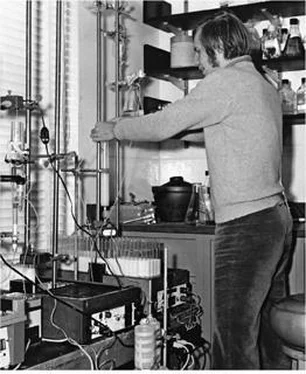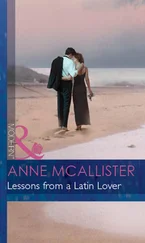James Watson - AVOID BORING PEOPLE - Lessons from a Life in Science
Здесь есть возможность читать онлайн «James Watson - AVOID BORING PEOPLE - Lessons from a Life in Science» весь текст электронной книги совершенно бесплатно (целиком полную версию без сокращений). В некоторых случаях можно слушать аудио, скачать через торрент в формате fb2 и присутствует краткое содержание. Жанр: Биографии и Мемуары. Описание произведения, (предисловие) а так же отзывы посетителей доступны на портале библиотеки ЛибКат.
- Название:AVOID BORING PEOPLE: Lessons from a Life in Science
- Автор:
- Жанр:
- Год:неизвестен
- ISBN:нет данных
- Рейтинг книги:5 / 5. Голосов: 1
-
Избранное:Добавить в избранное
- Отзывы:
-
Ваша оценка:
- 100
- 1
- 2
- 3
- 4
- 5
AVOID BORING PEOPLE: Lessons from a Life in Science: краткое содержание, описание и аннотация
Предлагаем к чтению аннотацию, описание, краткое содержание или предисловие (зависит от того, что написал сам автор книги «AVOID BORING PEOPLE: Lessons from a Life in Science»). Если вы не нашли необходимую информацию о книге — напишите в комментариях, мы постараемся отыскать её.
AVOID BORING PEOPLE: Lessons from a Life in Science — читать онлайн бесплатно полную книгу (весь текст) целиком
Ниже представлен текст книги, разбитый по страницам. Система сохранения места последней прочитанной страницы, позволяет с удобством читать онлайн бесплатно книгу «AVOID BORING PEOPLE: Lessons from a Life in Science», без необходимости каждый раз заново искать на чём Вы остановились. Поставьте закладку, и сможете в любой момент перейти на страницу, на которой закончили чтение.
Интервал:
Закладка:
I met with him and Tom Wilson several times before Eph London came into the picture to tell Schwartz that the changes he wanted were unnecessary, as Honest Jim was neither libelous nor an unwarranted invasion of privacy. Many of Schwartz's suggestions would blunt intended candor. His accepted version of the first sentence, “I can't ever remember seeing Francis Crick in a modest mood,” could only have been written by a timid lawyer. In a few cases, he wanted harmless substitutions such as often instead of generally. To these I gave in. As Tom Wilson strongly concurred, I also agreed to Schwartz's wish that the title become The Double Helix.
The situation was less under control across the Atlantic, where Weidenfeld's solicitor, Colin Madie, still maintained that Francis was being defamed and that, given his reputation for not being particularly well balanced, we should not expect him to act in his own long-term interest. By the end of September, Madie abruptly changed his opinion, telling Weidenfeld to proceed. This happened after he showed the manuscript to a close friend who had known Francis for years and who told him that my portrait of Crick was “right on mark.” Weidenfeld's editor in chief, Nicolas Thompson, then reread the manuscript, writing to me that “my picture of Francis was one only a hypersensitive or very unreasonable person could object to. You point
to his faults indeed, but much more to his enormous talents and likable qualities.”The way was now clear to sign final contracts, with Tom Wilson looking embarrassed as he conveyed to me Simon Michael Bessie's offer of an André Deutsch-magnitude advance. Seeing no gain from asking Bessie why he took me for a fool, I let Eph negotiate a more reasonable sum. Later, Bessie tried to renege on his promise to stipulate that Atheneum would pay one-half of any costs of successfully defending a libel suit. So I wrote him that the contract already incorporated all compromises, and there we must stand. Otherwise, I would find another publisher, notwithstanding my connection with Tom. I gave him a deadline to back down, which he did. I felt sorry for Tom's having to be associated with this overrated publisher, who was not a patch on someone like George Weidenfeld.
A better side of Atheneum was presented by Harry Ford, who chose the typeface and designed a striking red jacket. Once I got through my first fall Harvard lectures, I assembled and sent on to him the appropriate photos and preliminary sketches for diagrams of DNA bases, the sugar phosphate backbone, and so on. Libby Aldrich was no longer available to help me, having gone off to Lady Margaret Hall at Oxford to study English and also to avoid facing her emotions concerning the Advocate's former editor Stuart Arrowsmith Davis. In Plath-like fashion, she wrote a blue-tinted letter to describe herself as freezing, pale, and gaunt, but very well acclimated to dropping shillings into various heating devices and visiting the public baths (another shilling) along with the rest of the neighborhood's female population of Indians and Cypriote. Lady Margaret Hall itself, she said, was part convent, part prison, and very much an autonomous little private girls’ school, through which passed innumerable withered little old ladies, two of them her tutors—the Anglo-Saxon one old and fierce, the literature one old and sadly girlish. For cheer, pictures of Mick Jagger and Bob Dylan were on the walls of her two attic rooms, above the floors occupied by her meek Irish landlord and his virago wife. Seeing Privilege, Libby wrote that she shortened her skirts and aimed to cultivate glamour.
Tom Wilson now was in a position to contact the New Yorker about
serializing The Double Helix as they had Truman Capote's In Cold Blood. But they turned us down, as did Life magazine, which said they had already dealt with DNA through their big 1963 illustrated article. The Atlantic Monthly responded more positively, publishing The Double Helix intact in their January and February 1968 issues. By then, Francis and Maurice had given up thoughts of any legal action, with Francis feeling victorious over HUP's withdrawal. No one would now have cause to think The Double Helix a scholarly book. Early in February 1968, Eph sent me a bill for $700 for his assistance between June 1967 and October 6, 1967, citing charges for (1) his opinions with respect to libel, (2) the withdrawal of Atheneum-suggested changes that he thought unwarranted, and (3) conferring with attorneys for Atheneum with respect to requests by Dr. Crick's attorney to examine manuscripts, correspondences, et cetera. To complete the bill, $8.86 was requested for toll calls and $5.75 for messenger service.A luncheon was held at the Century Association on February 14, 1968, for reviewers and science editors. There I would have to be gracious to Michael Bessie, but Libby Aldrich was on hand for me to make snide remarks to behind his back. Just before Christmas, Oxford had dropped out of her life, and for six weeks she'd expected to be Mrs. Stuart Arrowsmith Davis. The wedding was meant to take place in Bronxville the Saturday before my event. Just before the ceremony, however, the groom had suffered a nervous collapse and the marriage was indefinitely postponed. By the luncheon's end, Libby was nowhere to be seen, and I eventually found her in a ladies’ room passed out from having drowned her sorrows in pre-luncheon drinks. A cab took us to the Plaza, where I had a big room with a window on the park. Libby instantly fell asleep in my bed. By 7:00 P.M., she was alert enough for dinner at La Cote Basque before I took her to Grand Central Station for the train to New Haven, where Stuart was a Yale graduate student.
The next evening I met the Atheneum publicity agent at the studio where I was to appear on Merv Griffin's TV show. My conversation with Griffin seemed to end almost before it started, with my nervous movements causing Merv's English-butler sidekick, Arthur Treacher (also of eponymous fish and chips fame), to ask whether I needed the
little boys’ room. Ten days later, I went back to New York to appear after Harry Belafonte on the Today show and attend a luncheon to mark the book's official publication date. In the middle of March I was there yet again for a book world luncheon at the Waldorf-Astoria. By then, several positive reviews had appeared, the most important by the Columbia University sociologist Robert Merton. The article, entitled “Making It Scientifically,” began: “This is a candid self-portrayal of the scientist as a young man in a hurry.” Richard Lewontin used his Chicago Sun-Times space to compare it to Francoise Gilot's Life with Picasso, calling it a vulgar curiosity about minor scientific celebrities. Soon I was on the New York Times best-seller list, remaining there for sixteen weeks, though never near the top. Time magazine for some two weeks wanted me on its cover, sending a reporter to follow me about at Harvard and then watch me speak at Dartmouth. Eagerly I sought out Time on the day promoted for my front-page appearance only to see the face of “Danny the Red.” The student barricades in Paris had become more important than DNA.Only late in May did Weidenfeld publish the British edition of The Double Helix. They had produced a much condensed version for the Sunday Times to publish, but I nixed the effort, saying that it lacked the character of the full book and would unnecessarily annoy Francis and Maurice. Even worse was the vulgar jacket, printed a month before publication without my input. It made Francis seem ridiculous, with such ludicrous attempts at seductive copy as: “1) Which winner of the Nobel Prize has a voice so loud it can actually produce a buzzing in the ears? 2) Who is the top Cambridge scientist who gossips over dinner about the private lives of women undergraduates? 3) Which eminent English biologist created a scandal at a costume party by dressing up as George Bernard Shaw and kissing all the girls behind the anonymity of a scraggy red beard?” Mortified by my publisher's stupidity and grossness, I immediately contacted Nicolas Thompson to have Weidenfeld replace the offensive jacket. With no argument they backed down, and George Weidenfeld personally reassured me that all the jackets were being destroyed.
Читать дальшеИнтервал:
Закладка:
Похожие книги на «AVOID BORING PEOPLE: Lessons from a Life in Science»
Представляем Вашему вниманию похожие книги на «AVOID BORING PEOPLE: Lessons from a Life in Science» списком для выбора. Мы отобрали схожую по названию и смыслу литературу в надежде предоставить читателям больше вариантов отыскать новые, интересные, ещё непрочитанные произведения.
Обсуждение, отзывы о книге «AVOID BORING PEOPLE: Lessons from a Life in Science» и просто собственные мнения читателей. Оставьте ваши комментарии, напишите, что Вы думаете о произведении, его смысле или главных героях. Укажите что конкретно понравилось, а что нет, и почему Вы так считаете.












